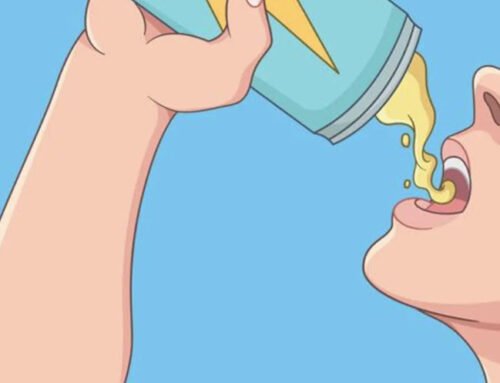Click here to view video clip and article on NZ Herald site (1/10/2016)
Researchers wonder if Kiwis’ caffeine love affair could be a fatal attraction.
By Jamie Morton (NZ Herald’s Science Reporter)
It’s well known that Kiwis have a love affair with caffeine – but how many of us know about the potential hidden harm it could be causing us?
Scientists at Massey University and University of Auckland are leading a large-scale research programme aiming to build a detailed picture of the amount of caffeine we’re consuming, and how our varying rates of metabolism or genetic traits could be causing unseen problems.
More than 70 per cent of New Zealanders consume caffeine regularly, but most don’t understand the effect it can have on their sleep, mood and cognitive functions.
The last major assessment of caffeine risk in New Zealand reported negative effects, from dizziness, rapid heartbeat, irritability, anxiety, tremors and insomnia to diarrhoea, nausea and vomiting.
Single high doses of caffeine could affect the cardiovascular system by causing a rapid heartbeat and high blood pressure, and caffeine intake could also be associated with a slight deterioration in calcium balance.
Massey sports and exercise scientist Dr Ajmol Ali, who is leading the programme, said caffeine was notably a key antagonist of adenosine, which helps induce sleep by blocking wakefulness and can lead to heightened perception of pain.
“So this means other neuro-transmitters like dopamine go into the brain and keep us awake, reduce pain and give us that ‘feel-good’ factor, and that’s why we ultimately think caffeine helps performance,” he said.
“However, some people experience strong effects of caffeine, and others don’t – and that got me interested and thinking, why could that be?”
Ali and his colleagues see an urgent need for more information, which could lead to new targeted interventions to those found most at risk.
One new study is surveying the genotypes of hundreds of young Kiwis and quizzing them on their intake to seek out potential genetic dispositions.
It partly looks at the caffeine-related gene CYP1A2, which has three variations that can determine whether an individual is a slow, intermediate or fast metaboliser of caffeine.
Slow metabolisers were considered to have a higher risk of the negative effects of caffeine, as it remains in the body longer, one variant has been associated with an increased risk of heart attacks.
Another gene that affects the metabolism of caffeine is ADORA2A, a variant of which has been found to be associated with panic disorder, along with caffeine-induced anxiety, sleep changes and caffeine sensitivity.
Over recent times, there has been an increase in consumption of caffeine, which was now in a greater variety of products marketed to a wider range of people.
Data from the US shows a doubling of visits to hospital emergency departments because of energy drink consumption, although there’s no published research yet to show the same is happening here.
There has also been an increase in reported cases of caffeine poisoning in New Zealand, and 25 per cent have been because of the consumption of energy drinks.
Ali was keen to investigate caffeine’s impact on the health system, but first saw the need to collect enough data to create risk profiles that could be based on sex, age, underlying health conditions, genetic traits and ethnicity.
“There is some research that suggests Asian and African populations metabolise caffeine slower than white Caucasian people but more research needs to be done in this area – especially within multi-cultural and multi-ethnic societies like New Zealand.”
The programme was also focusing on top athletes, who commonly used caffeine to boost performance, cognition and perception.
Ali pointed to a 2011 study that analysed 21,000 urine samples from athletes and found around 75 per cent were using caffeine as an ergogenic aid.
“We want to find out how much athletes know about caffeine, where they get their information from, and why they take it.”
Yet another project was looking at caffeine and children, and its effects on their sleep, nutrition, cognition and academic abilities.
“Our ultimate goal is to develop an area of expertise around caffeine and caffeine use,” Ali said.
“We don’t want to be the ‘fun police’, or anything like that: all we want to do is let people know how and why we’re taking it, so we can then benchmark that information and afterwards find ways to help people use caffeine responsibly.”
Caffeine: How much is too much?
Saskia Stachyshyn knows her limit: any more than one cup of coffee in the morning will ruin her night’s sleep.
“It’s just because I know the effect it has on me, but then I think I’m one of those more sensitive people.”
The Massey University masters student didn’t formerly drink it, but the hard grind of study has demanded it.
So how much caffeine should we be having every day?
There’s no concrete guidelines in New Zealand, but Stachyshyn says research from around the world suggests the threshold should be no more than 400mg – or the content of four shots of espresso.
A 250ml can of Red Bull energy drink has 80mg of caffeine, the same-sized can of V has 78mg, and a 355ml can of Coca Cola has 34mg.
But Stachyshyn pointed out that the general 400mg limit applied to the general public, and not particularly to young people, children and pregnant women, who should be having much less.
Again, there hadn’t been enough research, but previous work has suggested 26 per cent of people could be at risk of negative effects.
Stachyshyn’s study surveys about 450 tertiary students on how much caffeine they’re consuming in the forms of coffee, tea, energy drinks and shots, work-out supplements, caffeine tablets and chocolate.
“There are different populations that might be at more risk as well, just as there are different motivations and reasons for using it: that’s what we’re looking at right now.”









